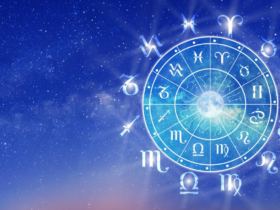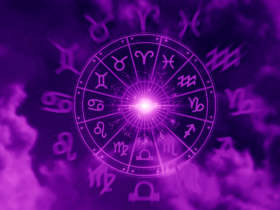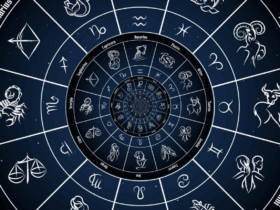Astrology, an ancient practice that has captivated cultures worldwide for centuries, offers a fascinating lens through which we can gain insights into human behavior, relationships, and life events. Rooted in the belief that celestial bodies hold influence over earthly affairs, astrology provides a framework for understanding ourselves and the world around us. In this article, we will explore the basics of astrology, including its foundations, key components, and how it can be used to gain a deeper understanding of ourselves.
The Foundations of Astrology: At its core, astrology is based on the premise that there is a meaningful relationship between celestial bodies and human existence. It views the positions and movements of the Sun, Moon, planets, and other cosmic entities as indicators of our personalities, behaviors, and life experiences. Astrology recognizes the interconnectedness of the universe and believes that celestial influences shape our individual paths.
The Zodiac Signs: The zodiac signs form the foundation of astrological analysis. The zodiac is divided into twelve equal parts, each representing a specific period of the year and associated with certain personality traits and characteristics. These signs are Aries, Taurus, Gemini, Cancer, Leo, Virgo, Libra, Scorpio, Sagittarius, Capricorn, Aquarius, and Pisces. By examining the sign under which a person is born, astrologers can glean insights into their innate qualities and tendencies.
The Birth Chart: The birth chart, also known as the natal chart or horoscope, is a map of the sky at the precise moment of an individual’s birth. It serves as a snapshot of the positions of celestial bodies and provides a detailed analysis of an individual’s personality and life patterns. The birth chart consists of the twelve zodiac signs, planets, and houses, each representing different aspects of our lives, such as personality traits, relationships, career, and spirituality.
Planetary Influences: The planets in astrology represent various archetypal energies and characteristics. Each planet symbolizes a different facet of human experience and influences different aspects of our lives. For example, the Sun represents our core identity and ego, the Moon reflects our emotions and instincts, Mercury governs communication and intellect, Venus embodies love and relationships, Mars represents energy and action, and so on. The interactions between these planetary energies within the birth chart provide insights into our unique qualities and experiences.
Related: The Science of Synchronicity: Carl Jung, Astrology, and Meaningful Coincidence
Aspects and Transits: Astrological aspects refer to the relationships and angles formed between planets in the birth chart. These aspects reveal the dynamics and interactions between different planetary energies and can indicate areas of strength, challenges, and opportunities in our lives. Transits, on the other hand, refer to the current positions of the planets in relation to the birth chart. They provide a way to understand the ongoing influences and potential shifts in our lives.
Astrology as a Tool for Self-Reflection: Astrology offers a powerful tool for self-reflection and self-awareness. By studying our birth charts, we can gain insights into our strengths, weaknesses, motivations, and life patterns. Astrology does not determine our fate, but it provides valuable guidance for understanding ourselves on a deeper level and making informed choices. It encourages us to embrace our inherent qualities, navigate challenges, and tap into our full potential.





















